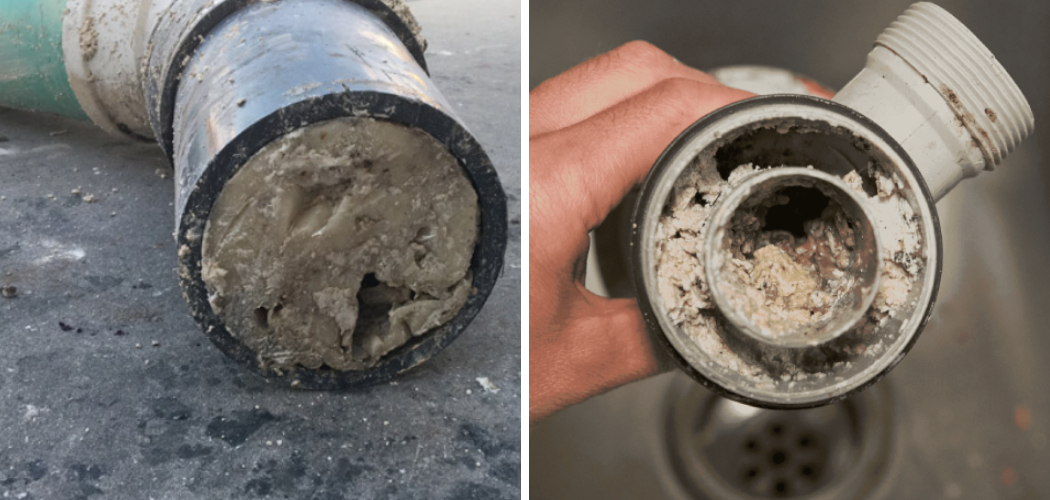When cooking, grease often ends up splattering all over the stovetop. But what do you do when it lands in the sink pipes? Grease can cause clogs and backups, so removing it as soon as possible is important. Here are some tips on how to get grease out of sink pipes.
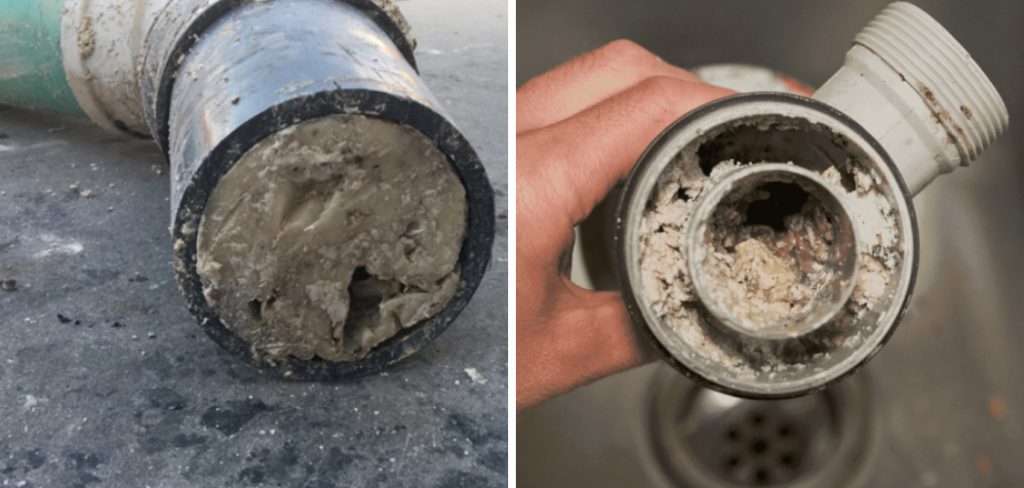
If you’ve ever cooked bacon, sausage, or any other kind of fatty meat, you know that the grease can quickly accumulate in your sink pipes and cause a nasty clog. If you don’t clean it up right away, that grease can harden and become very difficult to remove. But don’t worry – getting that grease out is actually pretty easy!
In this post, we’re going to share some tips on how to get grease out of sink pipes. Also, here are a few simple tips to help clear out your pipes and keep them grease-free. Keep reading for more information!
How Can Your Sink Pipe Get Grease?
Before we dive into how to get grease out of sink pipes, let’s talk about how it even gets there in the first place. Grease is often mixed with water from dishwashing or food prep, and it goes down your sink drain. As the grease cools off, it hardens and sticks to the inside of your pipes.
Another cause of grease is animal fats, like lard or bacon grease, which can also harden and stick to pipes over time.
The problem is compounded if you have a garbage disposal – the blades can break down bits of food waste, but they won’t do anything for grease buildup. That’s why it’s important to clean out your pipes regularly and prevent a grease buildup in the first place.
10 Easy Steps on How to Get Grease Out of Sink Pipes
Step 1: Boiling Water
One of the easiest ways to try and remove grease from sink pipes is by pouring boiling water down the drain. This can help break up and melt any hardened grease that has built up in your pipes. Make sure not to use too much water at once – you don’t want it overflowing from the drain! This step can be repeated a few times until the water runs clear.
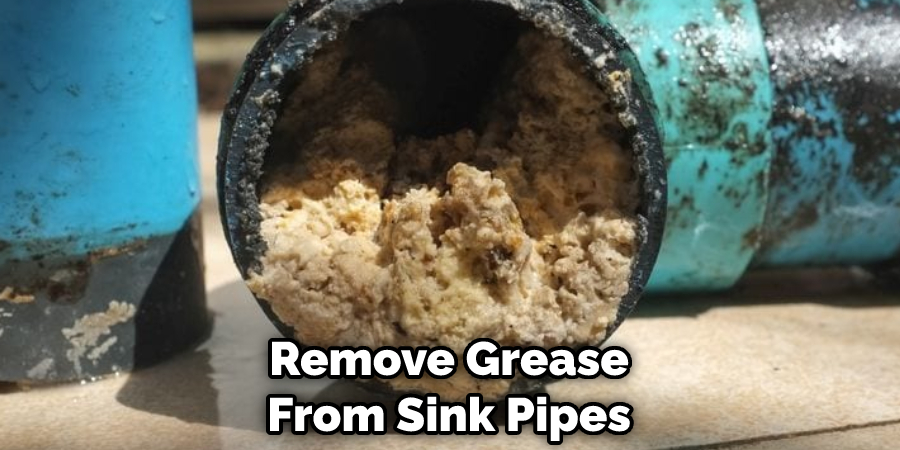
Step 2: Baking Soda and Vinegar
Mixing equal parts baking soda and vinegar can also help break up grease in your sink pipes. Pour the mixture down the drain, let it sit for about a few minutes, then flush with hot water. Use this method in combination with boiling water for maximum effectiveness.
Step 3: Plunger
If you have a clog, use a plunger to try and dislodge it. The suction created by the plunger can help break up any grease buildup and clear out your pipes. You can get a plunger specifically made for sink and toilet drains, but a regular plunger will work just fine too.
Step 4: Wire Hanger
Straighten out a wire hanger and use it to push through any clogs carefully or remove chunks of hardened grease from your sink pipes. Be careful not to scratch or damage the inside of the pipe! Otherwise, you may end up causing more damage and needing to call a plumber.
Step 5: Dish Soap
Dish soap is another effective option for breaking down grease buildup in sink pipes. Pour some dish soap down the drain, let it sit for about a few minutes, then flush with hot water. Make sure to use a bar of grease-cutting dish soap for the best results.
You Can Check It Out to Cut a Hole in a Stainless Steel Sink
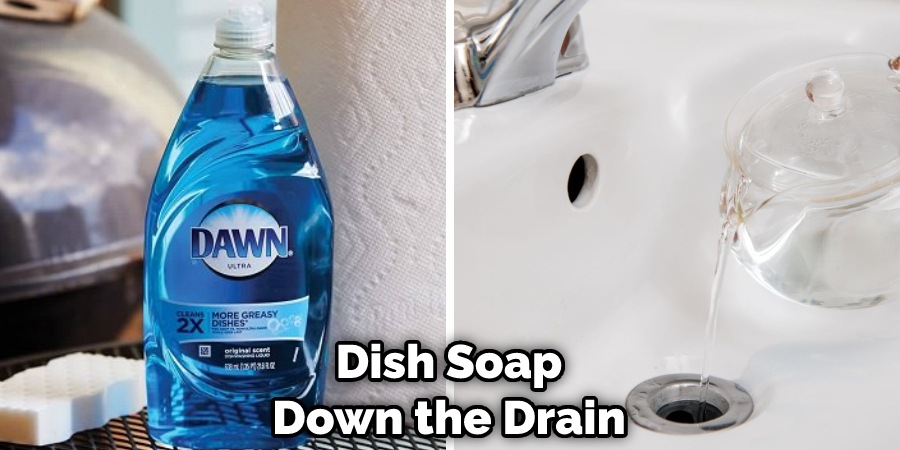
Step 6: Salt
Another surprisingly effective option for removing grease from sink pipes is salt. Pour a cup of salt down the drain, let it sit for about an hour, and then flush with hot water. Repeat if necessary.
Step 7: Baking Soda and Salt
Mixing equal parts baking soda and salt can also help break up grease in your sink pipes. Pour the mixture down the drain, let it sit for about an hour, then flush with hot water. Use this method in combination with boiling water or dish soap for maximum effectiveness.
Step 8: Clean out P-Trap
The P-trap is the curved pipe underneath your sink that captures any debris before it goes down the drain. Removing and cleaning out this pipe can help remove any buildup of grease or other debris in your pipes.
Step 9: Chemical Cleaners
If all else fails, you can also try using chemical cleaners. However, be careful not to use too much – these chemicals can damage your pipes and even be harmful if inhaled. Follow the instructions on the label and use caution when handling these cleaners. Chemical cleaners may be expensive and potentially harmful, so it’s best to try the above methods first.
Step 10: Call a Plumber
If none of these methods work, it may be time to call a professional plumber to take a look at your sink pipes. They have specialized tools and expertise to remove any stubborn clogs or buildup in your pipes effectively.
Remember to regularly clean out your sink pipes and prevent grease buildup in the first place to avoid clogs and other issues with your plumbing. These steps can help remove any existing grease buildup, but it’s always better to prevent it from happening.
You Can Check It Out to Get Rid of Roaches in the Drain
5 Additional Tips and Tricks
1. Use a sink plunger to dislodge any grease buildup in the pipes.
2. Use a garbage disposal, and grind up ice cubes and salt to clean and sharpen the blades.
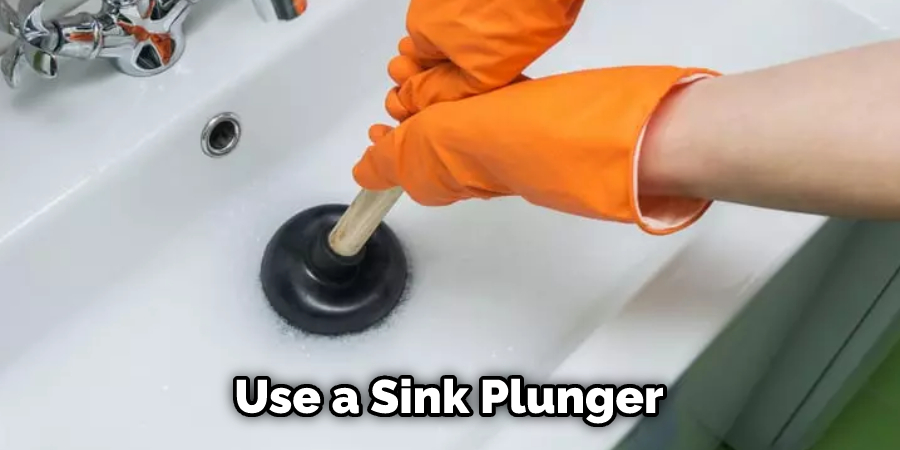
3. For a more natural option, pour a mixture of equal parts cream of tartar and hot water down the drain to dissolve greasy buildup. Repeat as necessary.
4. Apply a grease-cutting dish detergent and hot water to the affected area and let sit for a few minutes before flushing with hot water.
5. In extreme cases, try using a plumbing snake or auger to break up stubborn clogs.
However, be careful not to damage pipes in the process. It may also be best to consult a professional plumber for assistance.
7 Preventive Measures You Can Take
1. Wipe down dishes before washing to remove excess grease.
2. Use hot water when washing greasy dishes to help loosen grease before it can harden in the pipes.
3. Pour boiling water down the drain on a regular basis to help keep grease from building up in the pipes.
4. Avoid pouring grease or oil down the drain – dispose of it in a separate container and throw it away properly.
5. Consider using a grease trap for your kitchen sink to catch and collect grease before it enters the pipes.
6. Use a drain strainer to catch food particles and other debris that can contribute to clogs.
7. Regularly clean out the drain strainer and dispose of any collected grease in the proper manner.
We hope these tips and tricks help keep your sink pipes free of grease buildup and clogs. Happy cleaning!
What Are the Best Drain Cleaner for Grease?
Some popular drain cleaners for grease include chemical options such as Drano and Liquid-Plume, or more natural options like hot water and baking soda. It is important always to read and follow the instructions on the specific drain cleaner you choose.
If using a chemical option, make sure the area is well ventilated, wear gloves, and pour the cleaner slowly down the affected drain. Let it sit for about 10 minutes before running hot water through the drain to flush out any remaining grease.
Can You Use Bleach?
It is not recommended to use bleach as a drain cleaner for grease. Bleach can be harsh and potentially damaging to your pipes, and it may not be effective in breaking down grease. It is also important to note that mixing bleach with other cleaners, such as ammonia, can create toxic fumes.
If you are looking for a disinfecting cleaning option, try using white vinegar or hydrogen peroxide instead of bleach. These options are safer for your pipes and still effective at killing germs and bacteria.
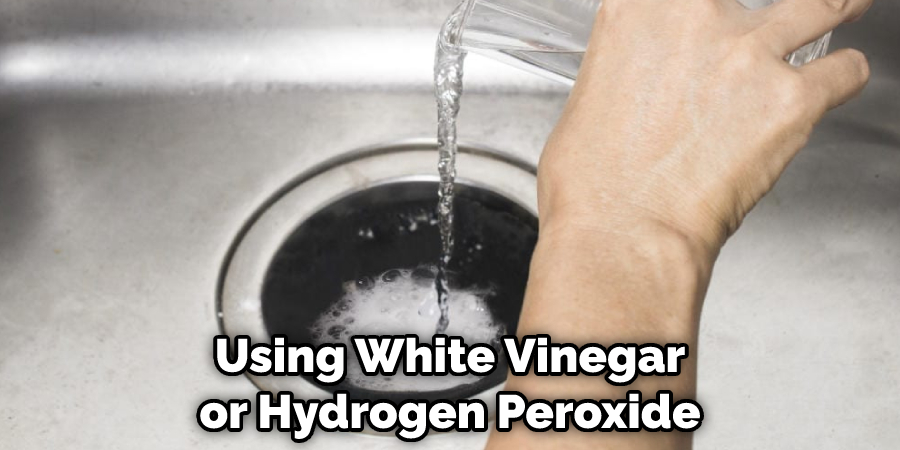
Overall, it is best to stick with the specific drain cleaner recommended for grease buildup rather than trying household products like bleach. Always exercise caution when using any type of chemical cleaner and read the instructions carefully before use.
Conclusion
So there you have it! A few quick, easy tips on how to get grease out of your sink pipes. Be sure to avoid letting grease build up in the first place by pouring it into a container and disposing of it properly. If you do end up with a clog, use hot water and detergent first, followed by baking soda if that doesn’t work. As a last resort, you can try using vinegar or bleach. You can also use a plunger or a plumbing snake. If the clog is severe, you may need to call a plumber.
Whatever method you choose, just be cautious and always follow the manufacturer’s instructions.
Now that you know how to get grease out of sink pipes, you can keep your kitchen running smoothly. Try one of these methods the next time your pipes are clogged.
You Can Check It Out Fix a Septic Tank That Backs Up

